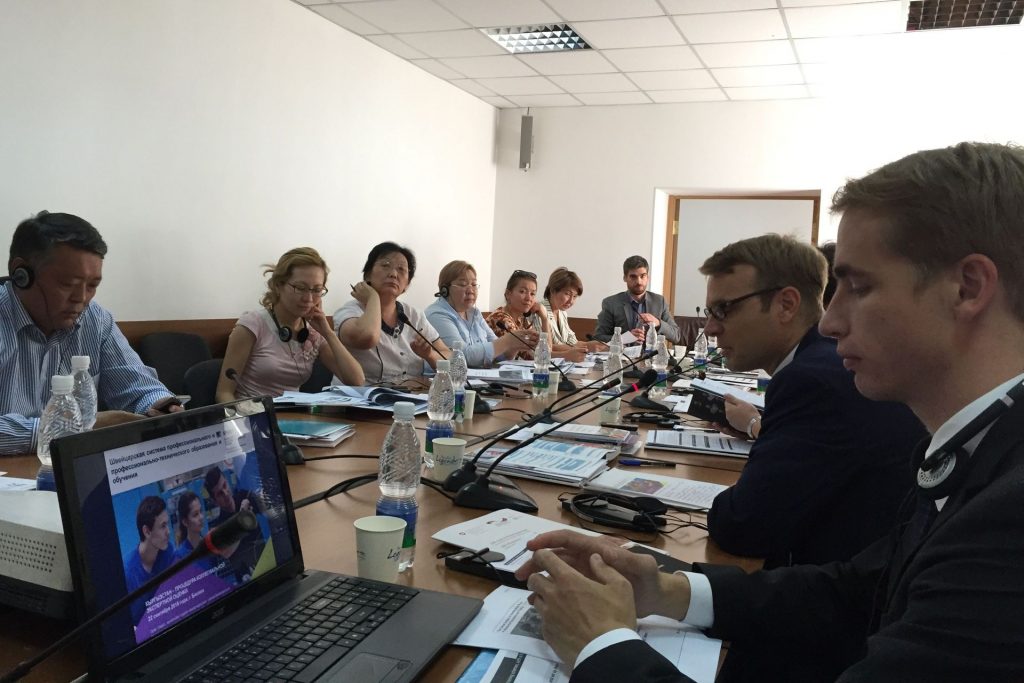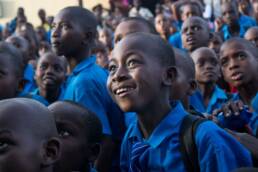Swiss support for the Global Partnership for Education
Bern to contribute CHF 52 million over 2021-2025 to accelerate access to quality education in the poorest countries
At the Global Partnership for Education (GPE) replenishment conference on July 28-29, 2021 in London, Switzerland announced a contribution of CHF 52 million for the period 2021-2025.
Commitment to equitable, inclusive, and crisis-resilient education systems is one of Switzerland’s priorities in the GPE.
“Raise your hand/raise your hand”: this is the call made by the GPE, the world’s largest fund dedicated to strengthening and financing education in low-income countries, to accelerate access to quality education in developing countries, where the education crisis has been exacerbated by the COVID-19 pandemic.
On June 11, 2021, the Federal Council had decided to renew its contribution to the fund with CHF 52 million. This support was announced today by Patricia Danzi, Director of the Swiss Agency for Development and Cooperation (SDC) of the Federal Department of Foreign Affairs (FDFA) at the World Education Summit in London.
“Without education, there is no equality, prosperity and sustainable development,” said Patricia Danzi. The GPE plays a key role in achieving the Education Sustainable Development Goal of the 2030 Agenda and, on this topic, is the priority multilateral fund of Switzerland’s International Cooperation Strategy 2021-2024.
Culture and economy: a truly winning combination in Ticino

Multilaterally shared federal goals
Despite renewed efforts to increase universal access to quality primary and secondary education, the United Nations reports that 258 million children and young people are still excluded, 127 million of whom live in conflict and crisis areas.
In addition, the quality of education often remains a challenge: in Sub-Saharan Africa, for example, according to the World Bank, almost 60% of students cannot read or write by the time they complete elementary school.
Finally, it is estimated that by 2050, half of the African population will be under 15 years of age, a figure that makes the need to accelerate inclusion and improve the quality of education even more urgent.
In its international cooperation strategy, Switzerland recognizes education as an essential component of human development.
A decisive lever in reducing poverty, it is the basis for gender equality, equitable participation in social and political life and economic development.
The strengthening of public education, equal opportunities and the mobilization of public and private actors for the innovation and financing of education are some of the priorities that Switzerland shares with the objectives of the GPE.
Switzerland will focus on strengthening competence in SMEs

All Swiss priorities in the EYPD in a five-year perspective
For the period 2021-2025, Switzerland’s dialogue within the Governing Board of the GoE promotes, in particular, the inclusion in the education systems of marginalized children of refugees or minority groups, the education of girls, and the strengthening of the link between humanitarian and development aid.
This “link” aims to ensure that new generations have access to quality education even during humanitarian crises and conflicts.
According to UNESCO, more than 20 million girls and boys are at risk of dropping out of school due to the closure of schools as a result of the COVID-19 pandemic, and total aid for education could decrease by 12% by 2022 due to the economic consequences of the pandemic.
The Leave No One Behind principle guides action on access to equitable, quality education. Increased funding for education, more effective governance, and educational content relevant to sustainable development are other priorities set by Switzerland in its commitment to the GPE.
The GPE counts among its partners nearly 70 developing countries, about 30 donors, multilateral organizations, NGOs and other civil society organizations such as teachers’ unions, foundations and private sector companies.
In response to the COVID-19 pandemic, the GPE mobilized an amount of $500 million, which has enabled the continued schooling of nearly 355 million pupils. Switzerland has financially supported this fund since 2009.
Swiss Federal Institutes of Technology in the world top 15







